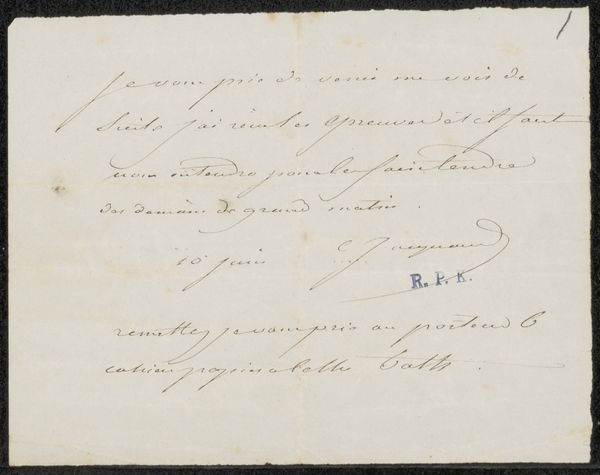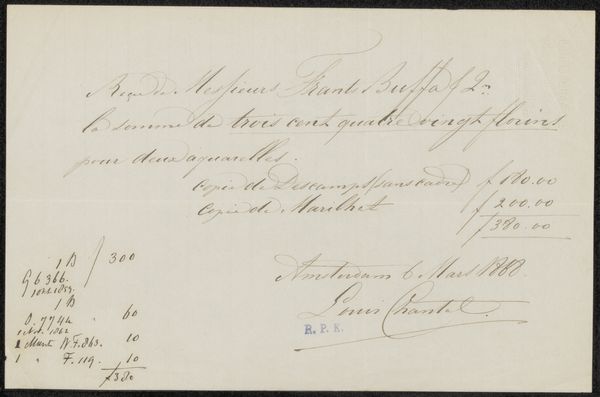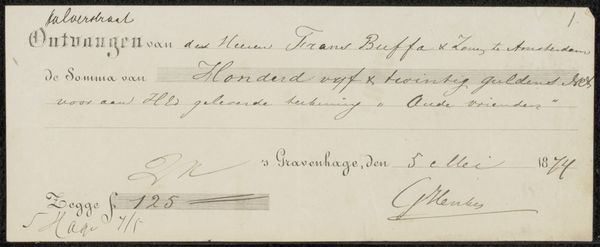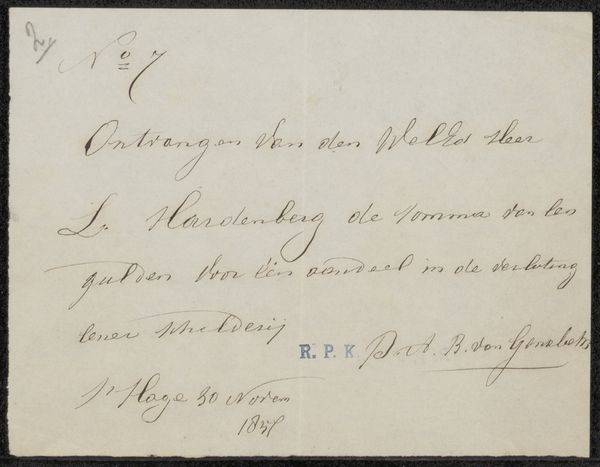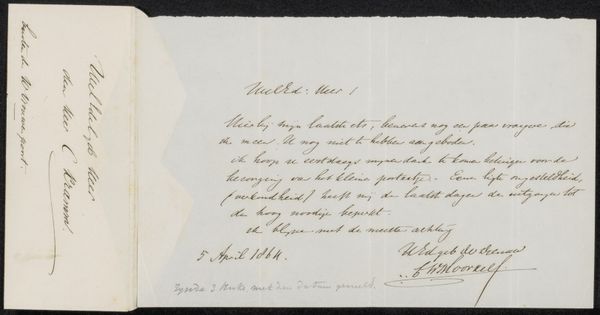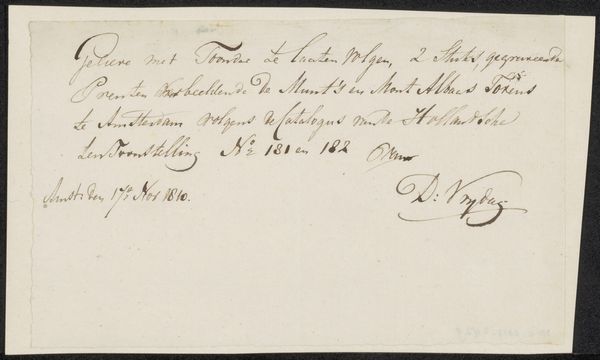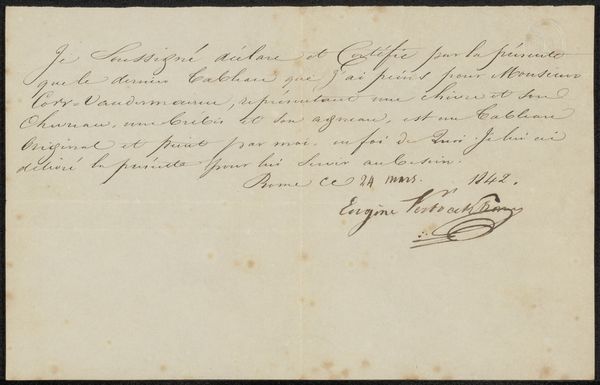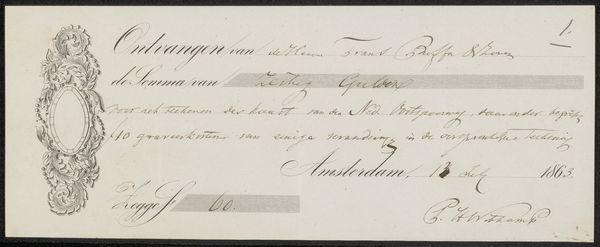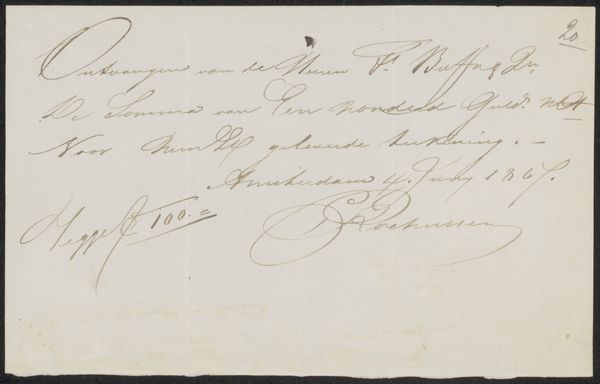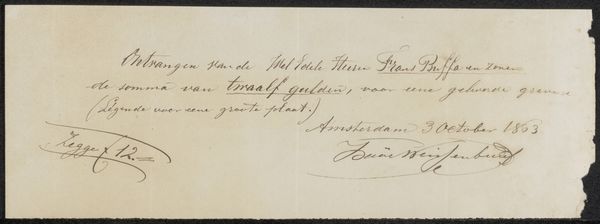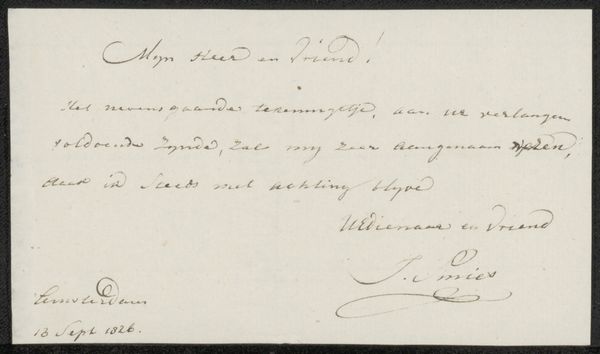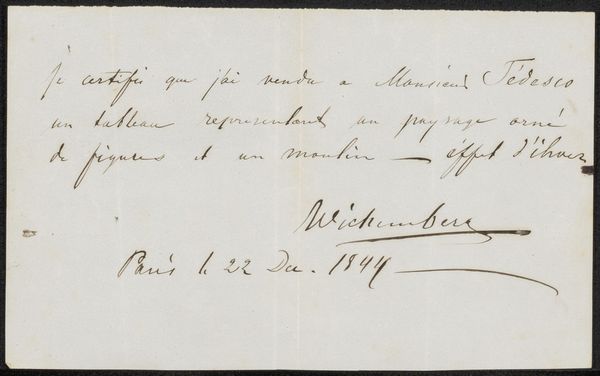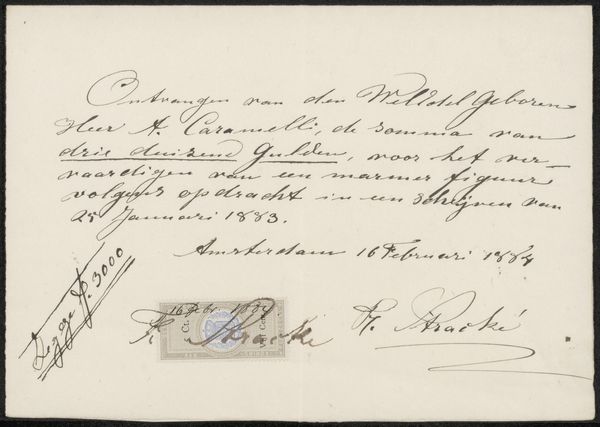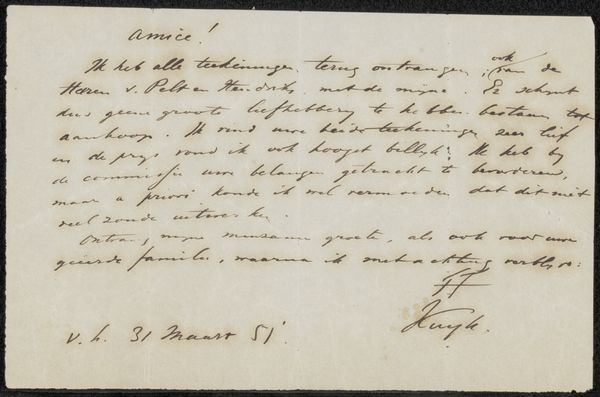
drawing, paper, ink
#
drawing
#
hand written
#
script typography
#
hand-lettering
#
dutch-golden-age
#
hand drawn type
#
hand lettering
#
paper
#
personal sketchbook
#
ink
#
hand-written
#
hand-drawn typeface
#
genre-painting
#
handwritten font
#
realism
#
calligraphy
#
small lettering
Copyright: Rijks Museum: Open Domain
Everhardus Koster penned this letter in The Hague, Netherlands, in May 1846. It’s a note from the secretary of a painters’ society, sent to its anonymous members. The contents concern a meeting to discuss regulations for painting from clothed models. In the 19th century, academies and societies played a crucial role in shaping artistic production. They set standards, provided training, and, as this letter suggests, policed what was deemed acceptable subject matter. The emphasis on clothed models reflects the social mores of the time, where modesty and decorum were highly valued. But it also hints at underlying tensions. The very need for such regulations implies a struggle between artistic freedom and societal expectations. What were the specific debates surrounding the use of nude or partially clothed models? How did these debates reflect broader social and political concerns about the body, sexuality, and public morality? These are the questions that the social art historian brings to the fore, using letters, minutes from meetings, and other primary source material to build a nuanced understanding of art’s place in the world.
Comments
No comments
Be the first to comment and join the conversation on the ultimate creative platform.
